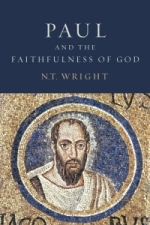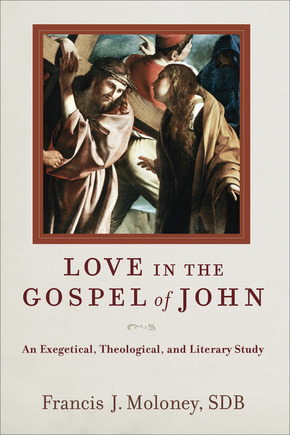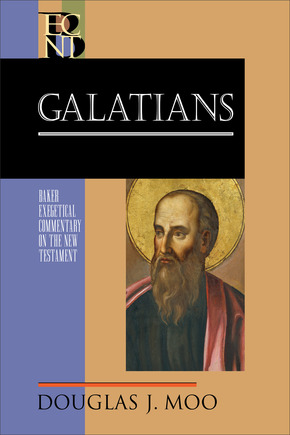For the past seven years, I have been a full-time janitor for a local school system that I actually attended as a youngster. It has been the main provider of support for both my wife and my daughter during that time. I have struggled since receiving my MA in NT studies from Ashland Theological Seminary in 2006, where I had the great privilege of working under my mentors, David deSilva and John Byron. This struggle is in knowing that I have been called to do PhD studies, but having many financial and familial obstacles, has placed the pursuit of that degree on the back burner for some seven years. I am not going to lie, I have had many sleepless nights, conflicted thoughts and emotional duress over the years concerning the whole ordeal. I don't want anyone to get the wrong idea, my wife has been extremely supportive over the years, and wants me to go for it, but also knows the reality of our situation.
 Recently, I have been granted some wonderful opportunities, and the reality of doing a PhD may be imminent. I won't go into any details now, because there are still more than a few details to be worked out. Rather, I want to turn my attention to someone who has accompanied me on my journey, and that man is Rikk Watts. Rikk is Professor of New Testament at Regent College, Vancouver, British Columbia, and until recently was unwittingly my mentor through what I like to call my 'wilderness experience,' i.e. my vocation as a janitor for the past seven years. I say unwittingly, because Rikk and I did not have a chance to meet in person until the recent SBL Annual Meeting in Baltimore. Fortunately, I got to tell him much of the following face to face over pizza and a beer.
Recently, I have been granted some wonderful opportunities, and the reality of doing a PhD may be imminent. I won't go into any details now, because there are still more than a few details to be worked out. Rather, I want to turn my attention to someone who has accompanied me on my journey, and that man is Rikk Watts. Rikk is Professor of New Testament at Regent College, Vancouver, British Columbia, and until recently was unwittingly my mentor through what I like to call my 'wilderness experience,' i.e. my vocation as a janitor for the past seven years. I say unwittingly, because Rikk and I did not have a chance to meet in person until the recent SBL Annual Meeting in Baltimore. Fortunately, I got to tell him much of the following face to face over pizza and a beer. Rikk's audio classes through Regent College have sustained me in my desire to never give up my dreams of serving as a scholar to my church and pursuing the allusive PhD. I get a chance to listen to my iPod at work a few hours a night, and during these times, Rikk's audio courses have left an indelible mark on me. Rarely, will one find the probing intellect and the pastoral warmth that he exhibits time and again, whether while during a lecture on Mark's Gospel he is discussing Jesus' mighty deeds, or in a class on John's Gospel, he ends up discussing the problem of evil in the world. Rikk has had me nearly in tears on more than occasion, as his transparency is even evident through the medium of audio. I would encourage all reader's of this blog to head over to Regent Audio, and purchase some of Rikk's classes. Right now, some of them are running at a discount if you sign up for Regent's audio class newsletter, and several of Rikk's lectures are being offered as a free download.
Rikk's audio classes through Regent College have sustained me in my desire to never give up my dreams of serving as a scholar to my church and pursuing the allusive PhD. I get a chance to listen to my iPod at work a few hours a night, and during these times, Rikk's audio courses have left an indelible mark on me. Rarely, will one find the probing intellect and the pastoral warmth that he exhibits time and again, whether while during a lecture on Mark's Gospel he is discussing Jesus' mighty deeds, or in a class on John's Gospel, he ends up discussing the problem of evil in the world. Rikk has had me nearly in tears on more than occasion, as his transparency is even evident through the medium of audio. I would encourage all reader's of this blog to head over to Regent Audio, and purchase some of Rikk's classes. Right now, some of them are running at a discount if you sign up for Regent's audio class newsletter, and several of Rikk's lectures are being offered as a free download.Everyone needs encouragement, and Rikk has encouraged me. He has kept my ship afloat one could say, and for that I can never repay him. I hope this brief glimpse into my feelings of admiration and now friendship for/with him become as crystal clear as the impact he has made on me, and no doubt, many others.
Below, I leave you with a couple of videos of Rikk, the first is a class he will be teaching in the late spring of 2014, "God's Faithful Character: The Key to the New Testament's Use of the Old"
The second is Rikk discussing Mark's Gospel. Rikk is currently writing the commentary for the Gospel of Mark for the NICNT.





.JPG)









































